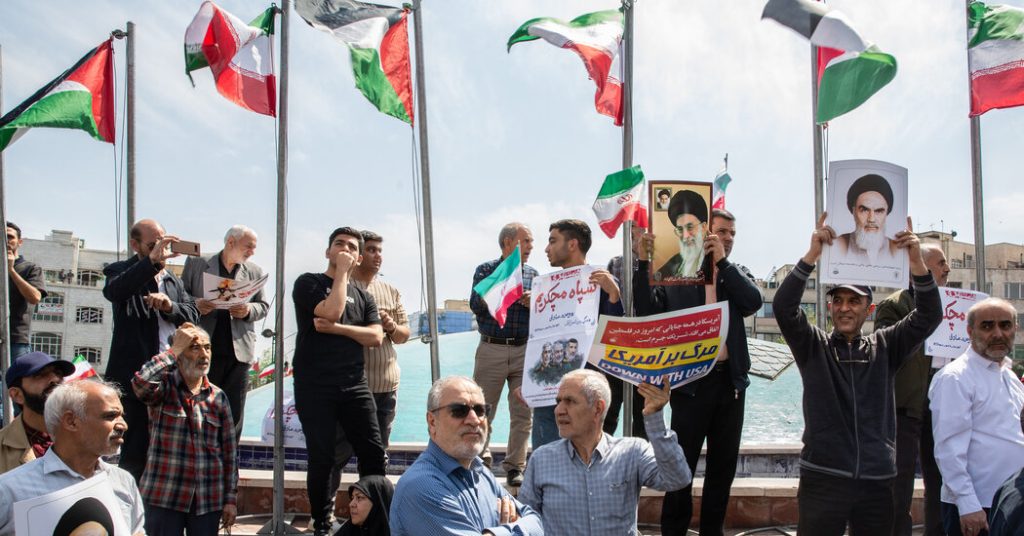In the early hours of Friday, Mehrdad, an engineer in Isfahan, Iran, woke up to the sound of explosions, only to realize that Israel had attacked Iran. A military base on the outskirts of Mehrdad’s city was the target, causing fear and anxiety among residents. The Iranian government, after initially promising a forceful response to Israeli attacks, seemed to be standing down from the brink of war. Facing economic challenges and internal unrest, the government is adopting a two-track policy of declaring victory over Israel while cracking down at home in an effort to address both external and internal challenges.
The recent tit-for-tat attacks between Iran and Israel have raised concerns about the possibility of a regional war. Iran responded to an Israeli attack on its embassy compound in Damascus by launching drones and missiles at Israel for the first time. World leaders urged Israel to respond with restraint, which it did by attacking an Iranian air force base with drones but deliberately avoiding inflicting significant damage. After the attack, Iranian state media downplayed the incident. Analysts suggest that Iran may be looking to de-escalate tensions with Israel after demonstrating its ability to deter further attacks.
Iran is currently facing a series of crises, including a plummeting currency, high inflation, and widespread corruption. The Iranian government is also grappling with a restive population that is increasingly demanding social and political freedom, as well as economic prosperity. Recent protests, including a 2022 revolt led by women against mandatory hijab laws, have challenged the government’s legitimacy. In response, the Iranian government has increased security measures, cracking down on women not observing the hijab law and threatening those who criticize its actions.
The government’s decision to enforce the hijab rule and crack down on dissent amid tensions with Israel has added to the anxieties of many Iranians. Reports of morality police beating and dragging women to police vans have sparked outrage and condemnation, particularly since the morality police were supposedly abolished during past protests. Critics argue that the government’s actions could further divide the population during a time of heightened tensions with a foreign adversary. The Iranian government has been intolerant of dissent, with journalists and analysts facing legal consequences for expressing concerns about the situation.
Despite criticism, analysts believe that the Iranian government will continue to pursue a policy of hostility towards Israel and strict enforcement of cultural and social norms, such as the hijab rule. By sending strong messages both externally and internally, Iran aims to demonstrate its strength while maintaining control over domestic challenges. The government’s actions are seen as an attempt to assert influence and deter threats from both foreign adversaries and domestic dissent. The situation remains tense as Iran navigates through economic difficulties, social unrest, and heightened tensions with Israel.













